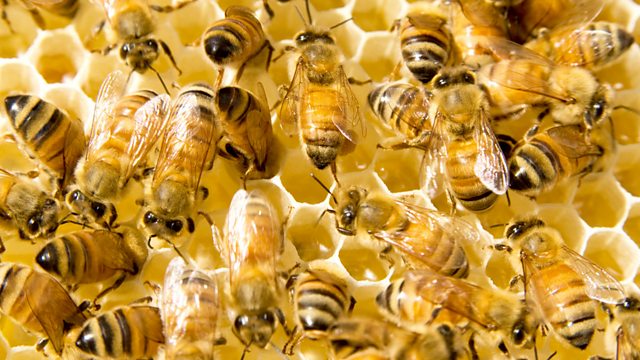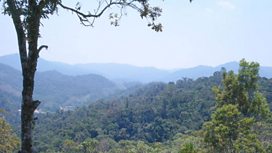Capture and Drawdown
Kathy Willis examines new ways to assess the role of plant biodiversity to our livelihoods and well-being. From 2014.
In 2005 a landmark study was published which changed the political landscape for conservation, probably for ever. Rather than viewing biodiversity as something to be conserved for conservation's sake, the Millennium Ecosystem Assessment started to assess the contributions that biodiversity makes to human livelihoods and well-being. These include regulating services ( such as modulating climate), cultural services (the spiritual, educational and recreational value) and provisioning services (the biodiversity that provides food, fresh water, and fuel).
Professor Kathy Willis examines the first of these new approaches to biodiversity conservation by firstly assessing the role plants play in regulating our atmospheric carbon dioxide. She talks to Yadvinder Mahli on the importance of trees in drawing down and capturing carbon and on new understandings in where the effect is most apparent on our planet.
But how we view ecosystems at the landscape scale is equally important if plants are to flourish in this capacity and recent reduction in vital plant pollination services are proving to be poorly understood .
But as Kathy Willis hears from chemistry ecologist Phil Stevenson, one of several approaches in improving the memory of bees that account for 30% of plant pollination could have a dramatic and significant effect in securing this vital function.
Producer: Adrian Washbourne.
Last on
More episodes
Previous
![]()
Kew’s scientific work addressing biodiversity loss, food security and climate change.
Clip
-
![]()
Plants: From Roots to Riches - Capture and Drawdown
Duration: 13:39
Broadcasts
- Wed 20 Aug 2014 13:45Βι¶ΉΤΌΕΔ Radio 4
- Wed 23 Mar 2016 14:15Βι¶ΉΤΌΕΔ Radio 4 Extra
- Thu 24 Mar 2016 02:15Βι¶ΉΤΌΕΔ Radio 4 Extra
- Wed 26 Jul 2017 14:15Βι¶ΉΤΌΕΔ Radio 4 Extra
- Thu 27 Jul 2017 02:15Βι¶ΉΤΌΕΔ Radio 4 Extra
- Wed 31 Jul 2019 14:15Βι¶ΉΤΌΕΔ Radio 4 Extra
- Thu 1 Aug 2019 02:15Βι¶ΉΤΌΕΔ Radio 4 Extra
Royal Botanic Gardens, Kew
Delve deeper into plant science and find out more about plants featured in the series
The Power of Plants
Discover a selection of programmes relating to plants.
Podcast
-
![]()
Plants: From Roots to Riches
Our relationship with plants: a major new history by Kew's science director Kathy Willis.




